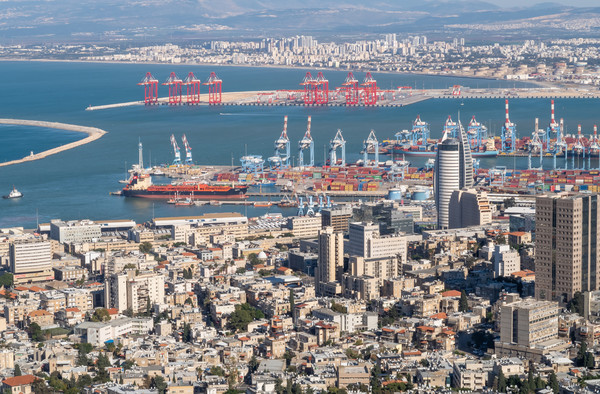“Israel ports are considered as the safest in the world […] despite several previous conflicts, no damage was sustained to any ship moored in all our ports…” Capt. Zadok Radecker, Director, Israeli Administration of Shipping & Ports 7.8.2024
Despite regional challenges since 7 October, Israel’s maritime industry remains resilient, with all seaports operating and maintaining activity. For marine insurers and cargo and vessel owners, understanding the current landscape in Israel, along with the benefits provided by the Israeli Property Tax and Compensation Fund (IPTCF), is crucial for risk management and strategic planning.
Israel's major seaports, Haifa and Ashdod, are operating without interruption, while the southern Port of Eilat functions at a reduced capacity. Notably, all Israeli seaports are managed by private companies, with the exception of the Port of Ashdod.
In Haifa, Haifa Port is operated by the Indian ADANI Group, the Haifa Bay Port by the Chinese SIPG group and the Israeli Shipyards Port by a group of Israeli shareholders. In Ashdod, Hadarom Container Terminal (HCT) is operated by the Swiss TIL company. These entities' continued operations demonstrate international confidence in Israel's economic stability and its potential to emerge as a commercial hub in the Mediterranean. Strategic measures such as the Iron Dome System safeguard these critical sites, ensuring that cargo flows remain steady and predictable.
A distinctive feature of the Israeli maritime insurance landscape is the IPTCF. This fund provides compensation for war damages to both Israeli and foreign vessels/aircraft within the Economic Waters of Israel, which extend roughly 200 nautical miles from the Israeli coastline.
Cargo, whether Israeli or foreign owned is also included in the IPTCF. Owners are also entitled to compensation for “War Damage” within the territory, airspace, and Economic Waters of the State of Israel. The State also offers importers and exporters the option to increase the scope of coverage outside the Economic Waters of the State of Israel through the sale of online insurance with competitive rates.This helps maintain supply chain continuity and secures coverage in high-risk areas. This is especially valuable as some insurers, both Israeli and foreign, have already cancelled War, Strikes, Riots, and Civil Commotions (WSRCC) coverage in certain high-risk regions.
This cover applies to war risks as per the IPTCF Regulations, which compensates for damage caused by acts of war, hostility, or actions by the Israel Defense Forces. Coverage includes the full amount of the actual damage, defined as the difference in asset value before and after the damage, or the cost of damage rehabilitation, whichever is lower.
For foreign insurers and shipowners, Israel’s compensation fund offers a dual benefit: operational security and financial protection. The assurance that sea ports remain open and the availability of comprehensive war damage compensation ensure that international shipping and trade activities can proceed with minimised risk.
The information given is accurate as at the date of publication; for further and updated details on the Israeli Property Tax and Compensation Fund, please see here.
For more information please see:
